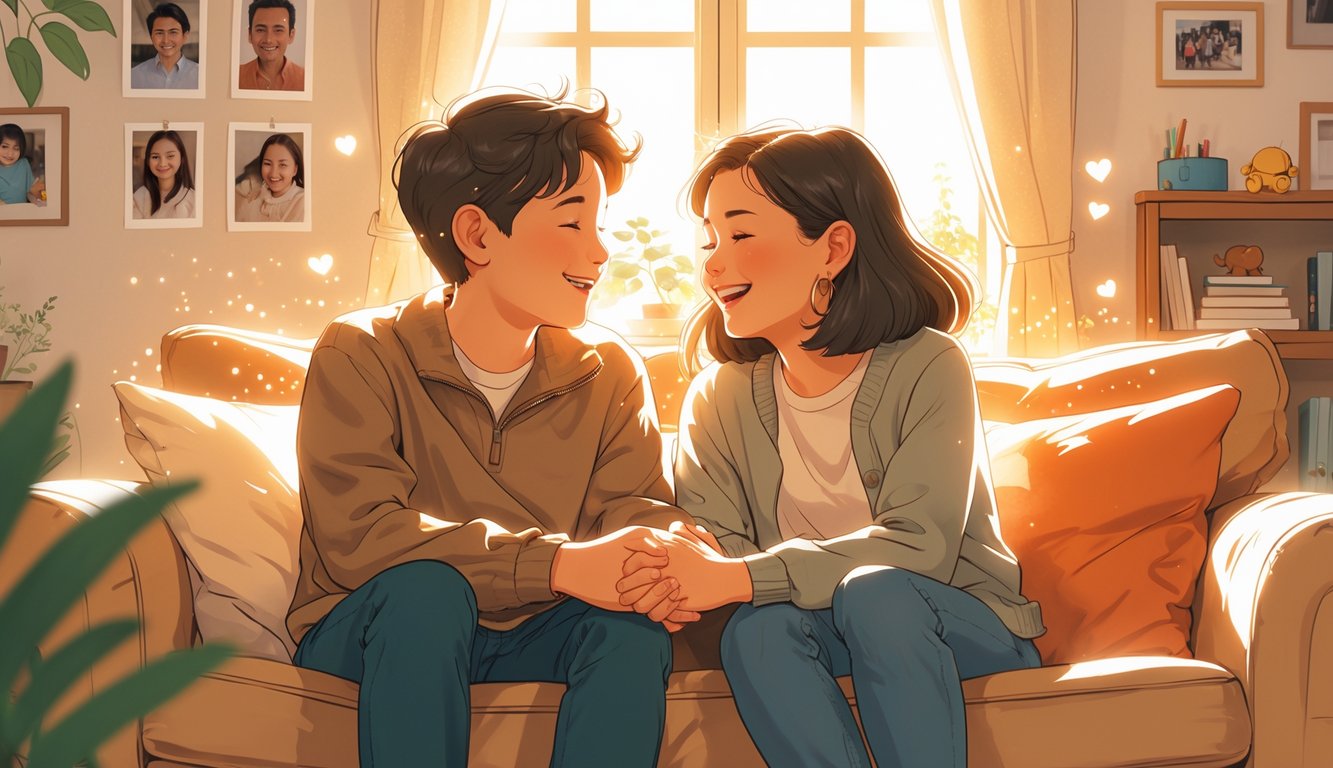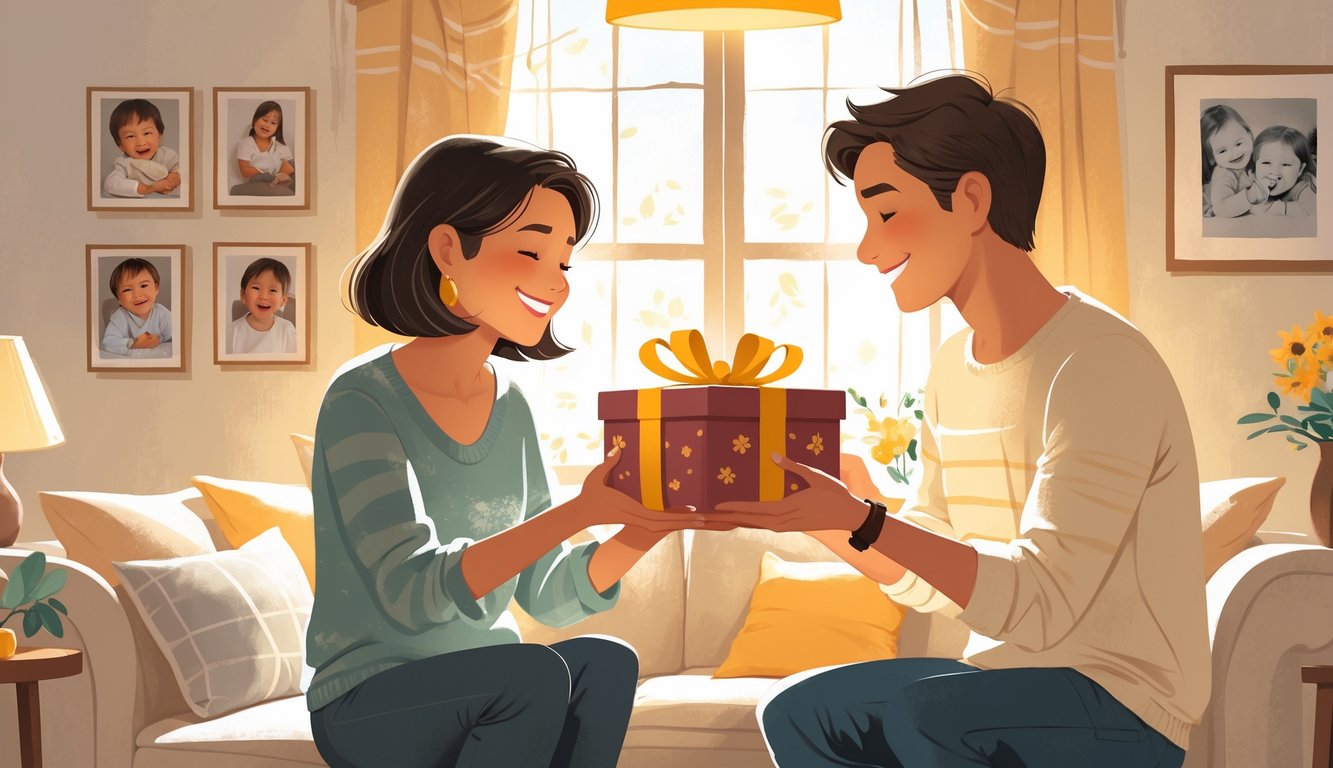
Okay, here’s the thing that drives me up the wall: people spend forever scrolling for “the perfect gift” for their siblings, as if they’ll find it on some influencer’s list. Really? If you’ve ever had a brother or sister, you know what actually matters. It’s never the gift card or the weirdly expensive gadget. It’s fighting over who left crumbs in the couch, or those endless Mario Kart showdowns that end in someone storming off. Seriously, the only gift that ever glues siblings together for life is just… time. Messy, ordinary, sometimes totally annoying time. Pew Research (2023, if you care) says 74% of adults wish they’d spent more time with family. No one’s lying awake at night wishing for another pair of socks.
Once, someone told me a designer lamp would “spark nostalgia.” Please. The only thing that’s ever made me nostalgic is the smell of my sister’s old hoodie, the one she wore when she demolished me at Monopoly for a whole summer. I mean, I’ve looked at sibling relationship quotes—Marian Sandmaier says your sibling “may be the keeper of your identity.” Sure, but nobody’s putting that on a mug with a $50 tucked inside. Is there an app for eye rolls and inside jokes? Nope. Silicon Valley, you’re slacking.
People push “experience gifts” like paintball or escape rooms, but they forget the scheduling is a nightmare and the group chat is a war zone. “Experts” love to say laughter matters more than keepsakes (tell that to anyone who’s hoarding their brother’s broken mug from eighth grade wrestling camp). Funny how everyone’s got an opinion, but honestly? Just show up. That’s it. No gift wrap required.
The Science of Sibling Bonds

People act like they’ve got siblings all figured out—“Oh, siblings fight but love each other!”—but, sorry, it’s way weirder and deeper than that. Family stuff, those random alliances, the years of blaming each other for stuff you both did? That’s what sticks. Actual research, not just random advice blogs, says sibling relationships shape you—identity, trust, mental health, all of it. Decades later, you’re still reacting to something your brother said when you were eight.
Understanding Sibling Relationships
Sometimes I wish there was a checklist for sibling relationships. There isn’t. It’s not just birth order or who’s the “funny one.” It’s who sits where in the car, who gets blamed for the spilled cereal. Sociologists, neuroscientists, everyone’s got a study. Jeffrey Kluger’s The Sibling Effect dives into all of it—twin studies, interviews, even genetics—showing how competition turns into teamwork (or not) as you get older. But, like, some people never outgrow the “he started it” routine. Thanksgiving, anyone?
One scientist on NPR said siblings influence us more than parents do. I mean, maybe? People obsess over birth order, but you can’t always see what moment actually cements that trust, or what dumb joke becomes a wall you never cross. Brain chemistry gets dragged in—dopamine, socialization, whatever. It’s all a lot, and somehow never the full story.
Family Dynamics and Identity Formation
Mismatched socks, shoes on the wrong feet, but my sister still shaped me more than any teacher. Identity isn’t a light switch. It’s built from years of spilled milk, accidental teamwork, whispered secrets, and betrayals that feel huge at the time. Psychologists at Psychology Today keep saying siblings force us into roles—protector, sidekick, scapegoat. Sometimes all three in one day.
Family dynamics? Never simple. A two-minute call or a group chat can send you straight back to age twelve. Experts say parents should care about sibling dynamics, not just milestones. Sibling rivalry isn’t just a cliché—there’s real evidence it affects self-esteem and mental health. I read somewhere teachers can spot kids with siblings just by how assertive they are. Every fight, every time you teamed up to hide something from your parents, it all adds up.
The Importance of Belonging
Belonging in a family is weird. It’s a reward and a punishment. You want in, but you’re stuck. Siblings create this tough bond—tougher than most friendships, way higher stakes. TIME flagged research saying siblings teach us stuff we can’t learn anywhere else—patience, loyalty, how to deal with wildly different personalities in close quarters.
Half the time, family feels impossible—alliances, someone left out, drama. But the glue isn’t sappy sentimentality. It’s years of context, secrets, unspoken codes. Even as an adult, I still weirdly want my siblings’ approval for stuff that shouldn’t matter. Maybe it’s history, or just knowing you can screw up and it’ll be remembered but not held against you forever. Researchers say the need for belonging is real. Siblings test and reinforce that every day, like it’s both a shield and a loophole.
Why Gift-Giving Matters Between Siblings

I still can’t believe how many fights as kids were over “That’s MINE!”—action figures, snacks, whatever. But give us one cheap cricket set, suddenly nothing matters except who gets bowled out first. Sibling gifts aren’t about the stuff. They’re about rituals, truces, those weird gifts you remember forever for no reason.
The Power of Shared Experiences
At eleven, I couldn’t figure out why we needed matching water bottles. But racing down the driveway, it felt like a team thing. Even when I hated the color. That one time we got a chemistry set and nearly blew up the kitchen? For weeks, it was our lab, our disaster zone. Failing together is way less embarrassing than failing alone.
Stanford claims shared experiences boost sibling closeness by 34%. I mean, sure, if you want numbers. What nobody mentions: siblings drag out these “shared traumas” at every family party, like, “Remember the goo? Mom’s curtains?” Nobody wins prizes for Most Crayon-Incident Memories, but those are the stories that stick. Try explaining to someone why a busted board game is more sacred than birthday cake. You can’t. It just is.
Symbolizing Support and Connection
Giving my sister soccer cleats seemed pointless until she trashed them practicing with me. Sometimes a dumb gift just says, “I get it. You exist. I know you want this.” Psychologists like Jessica Andrews-Hanna say gift exchanges light up reward centers in the brain—it’s not about obligation, it’s about connection. Not that I ever got a serotonin rush from gifting scratchy mittens, but she still told everyone she “loved” them.
Here’s what nobody tells you: sometimes you miss the big signals. Forget the birthday card. She once taped a note to my lunchbox for no reason. I still have it, crumpled in an old shoe. Made middle school less awful. Sibling support is built on these weird tokens, not the flashy stuff.
Building Lasting Memories
I always remember the wrong details. I forget who gave what, but not the look on his face when we tried to fix a tent with duct tape in the rain. Studies say early gift exchanges tie into lifelong memories—objects tied to history, not price. The Seattle Childhood Friendship Cohort (real thing) found siblings who recall specific gift moments feel more connected decades later. I checked—yep, still have that busted model rocket.
Nobody frames the lanyard or the embarrassing poem about “awesome” brothers. But every time I find that chipped mug from eighth grade, I laugh. It’s about the mess-ups, the failed surprises, the ugly wrapping paper. Sibling gifts pile up into a lopsided monument to everything you survived together. It’s never the neat stuff. Just proof you saw each other, for real. Sometimes, that’s enough.